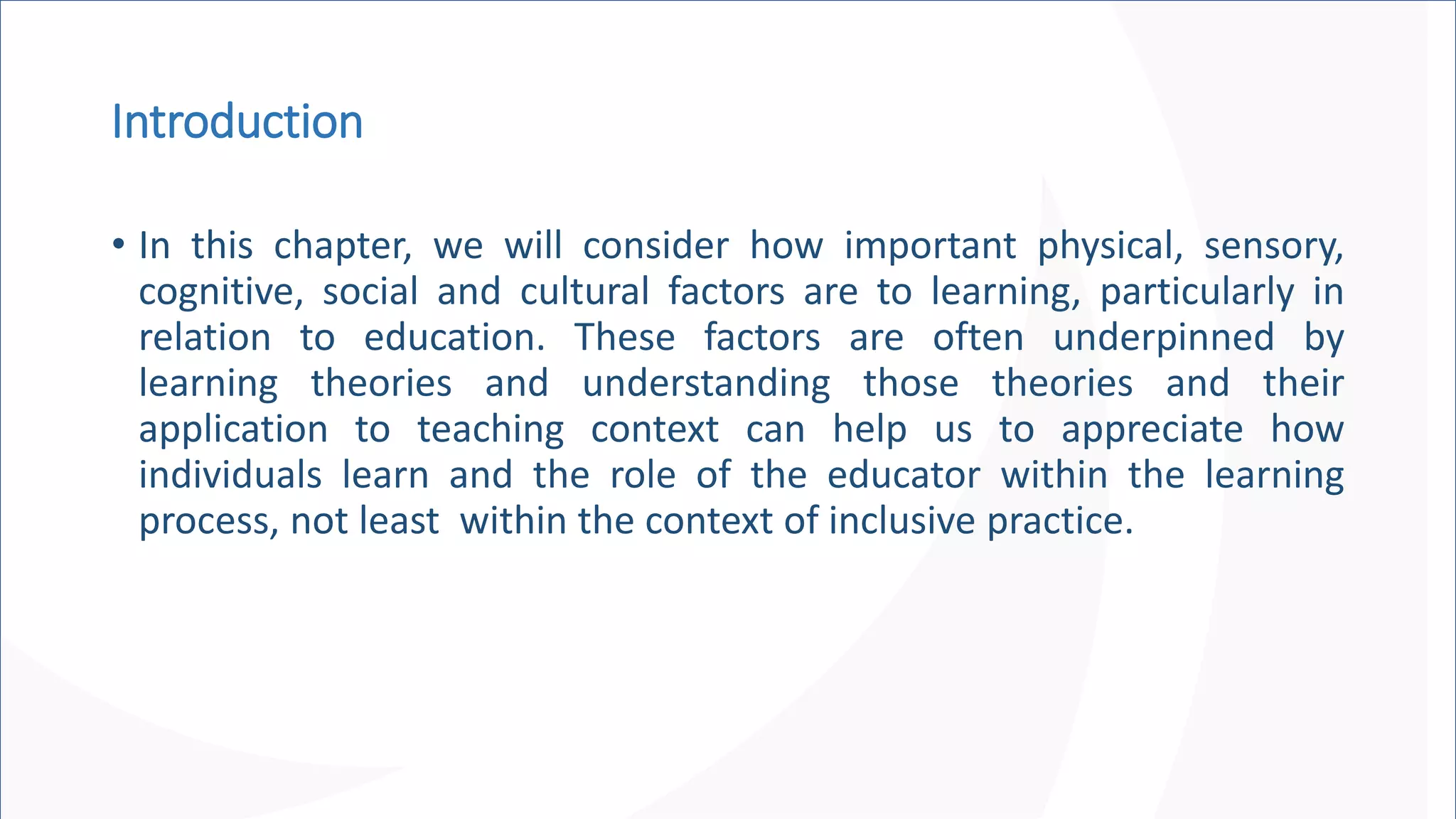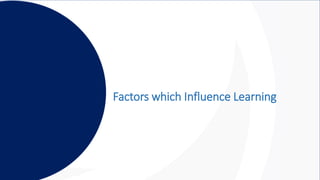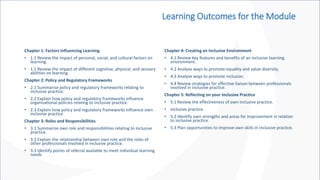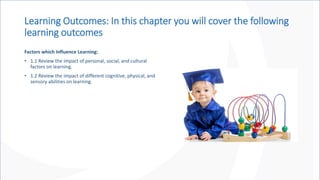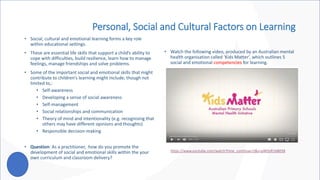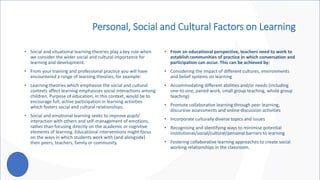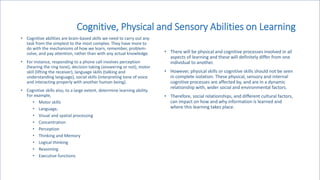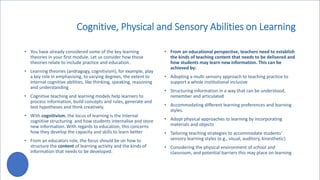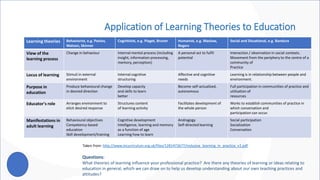This document outlines key factors that influence learning, including personal, social, cultural, cognitive, physical, and sensory abilities. It discusses how learning is impacted by an individual's environment and relationships as well as their internal cognitive skills. The document also examines various learning theories and how educators can apply these theories to promote inclusion. Educators should consider students' diverse backgrounds, needs, and learning styles to establish an inclusive learning environment where all students can fully participate.
